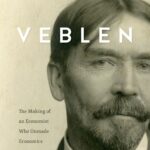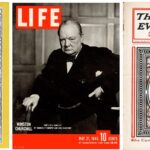 I am a fan of David Brooks, even though my politics may tend to drift a bit left of his. I enjoy his columns every week, and I especially like the subject matter of his latest book, The Social Animal–out now in stores and online. It seems that David and I have been reading the same books and research the past few years. I’m anxious to read more about his book.
I am a fan of David Brooks, even though my politics may tend to drift a bit left of his. I enjoy his columns every week, and I especially like the subject matter of his latest book, The Social Animal–out now in stores and online. It seems that David and I have been reading the same books and research the past few years. I’m anxious to read more about his book.
Here is a brief review of David Brooks book at The Book Beast. “The Social Animal is of a whole other order: authoritative, impressively learned, and vast in scope,” writes James Atlas. “Its thesis can be stated simply: who we are is largely determined by the hidden workings of our unconscious minds. Everything we do in life—the careers we choose; even, on a deeper level, the way we experience and perceive the sensation of being alive—emerges from an infinitely complex neuronal network sending out signals (Brooks calls them “scoutsâ€) that, largely unknown to us, assess and determine our behavior. Insights, information, responses to stimuli are governed by our emotions, a rich repository of thoughts and feelings that courses just beneath the surface of our conscious minds. They are “mental sensations that happen to us.—
 Thomas Nagel has a mixed review of the book in the upcoming New York Times Book Review. Brooks builds on the ideas of others to find his arguments. “As Brooks observes, these ideas are not new: the importance and legitimacy of sentiment and social influence in determining human conduct was emphasized by figures of the British Enlightenment, notably David Hume, Adam Smith and Edmund Burke. Hume denied the dominance of reason, though he also offered brilliant analyses of the complex and systematic ways in which our sentiments, or passions, operate. So what has been added by recent cognitive science? Most significant, according to Brooks, is the accumulating evidence of the many specific ways that our lives and conduct are less under our conscious control than we think.”
Thomas Nagel has a mixed review of the book in the upcoming New York Times Book Review. Brooks builds on the ideas of others to find his arguments. “As Brooks observes, these ideas are not new: the importance and legitimacy of sentiment and social influence in determining human conduct was emphasized by figures of the British Enlightenment, notably David Hume, Adam Smith and Edmund Burke. Hume denied the dominance of reason, though he also offered brilliant analyses of the complex and systematic ways in which our sentiments, or passions, operate. So what has been added by recent cognitive science? Most significant, according to Brooks, is the accumulating evidence of the many specific ways that our lives and conduct are less under our conscious control than we think.”
Nonetheless, Nagel wonders, How are we to use this kind of self-understanding? “Brooks emphasizes the ways in which it can improve our prediction and control of what people will do, but I am asking something different. When we discover an unacknowledged influence on our conduct, what should be our critical response? About this question Brooks has essentially nothing to say. He gives lip-service to the idea that moral sentiments are subject to conscious review and improvement, and that reason has a role to play, but when he tries to explain what this means, he is reduced to a fashionable bromide about choosing the narrative we tell about our lives, “the narrative we will use to organize perceptions.â€
In essence, Nagel argues that such ideas about our lives require conscious thought. And instead of wondering about the means, as Brooks does, perhaps we should give more of that directed thought to the ends. An interesting debate on fascinating research.





